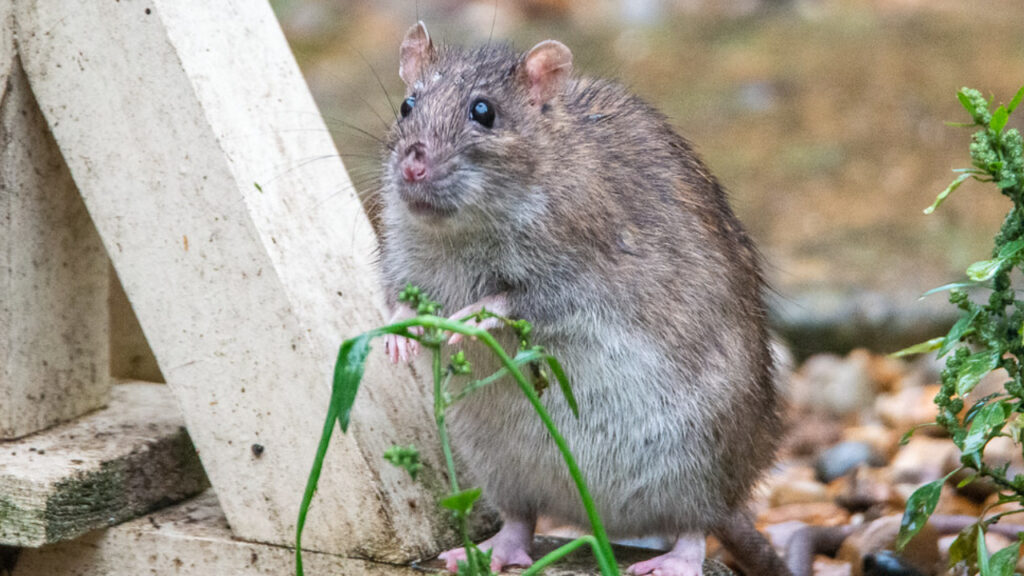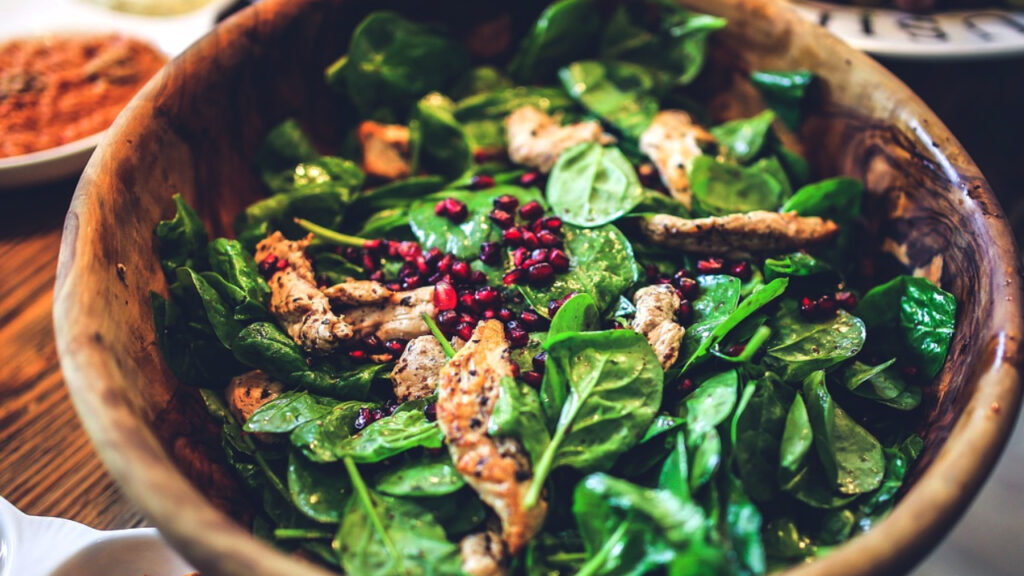
Spinach is a leafy green vegetable that belongs to the Amaranthaceae family. It is known for its nutritional richness and versatility in culinary applications. Spinach is often enjoyed both raw in salads and cooked in various dishes, such as stir-fries, soups, and casseroles.
But can rats eat spinach too?
Yes, rats can eat spinach, and it can be a healthy addition to their diet. Spinach provides essential vitamins and minerals, including vitamin A, vitamin C, vitamin K, folate, iron, and calcium. These nutrients contribute to overall health, immune function, and proper growth.
When offering spinach to rats, it’s advisable to provide it in moderation. While spinach is nutritious, overfeeding can lead to several issues.
So, should you feed spinach to your rats?
Let’s find out!
Table of Contents
Can Rats Eat Spinach?
Well, good news – rats can totally munch on spinach! It’s like a little green snack for them.
Spinach is packed with good stuff like vitamins and minerals that can keep your rat healthy. Just make sure you give them a small amount, kind of like a treat, not a whole mountain of spinach. Too much of anything is never a good idea, right?
So, next time you’re munching on a salad and your rat friend is nearby, feel free to share a tiny piece of spinach with them.
They’ll probably think it’s the best thing ever!
Just keep it in moderation, and your rat will be one happy and healthy little buddy.
You may also like: Can Rats Eat Arugula?
How Much Spinach Can Rats Eat?
Rats can enjoy a variety of veggies, and spinach is one of them. Now, when it comes to how much spinach, think of it like a small treat – about the size of your rat’s head.

So, you can give your rat a small piece of spinach, like a little leaf or two, a couple of times a week. That’s enough to add some green goodness to their diet without overdoing it.
Rats need a balanced diet, just like us, so it’s good to mix things up with other yummy foods.
Remember, moderation is the key!
Too much spinach might not be the best, so keep it as a special treat rather than a big daily feast. Your rat will be happy and healthy with this little spinach snack.
Is Spinach Healthy for Rats?
Spinach can be a healthy addition to a rat’s diet due to its rich nutritional profile.
A typical serving of spinach (100g raw) offers:
- Calories: 23 kcal
- Protein: 2.9 grams
- Carbohydrates: 3.6 grams
- Dietary Fiber: 2.2 grams
- Fat: 0.4 grams
Other health benefits of spinach may include:
Vitamins and Minerals
Spinach is packed with essential vitamins and minerals, including vitamin A, vitamin C, vitamin K, folate, and various B vitamins. These contribute to overall health, immune function, and proper growth.
Antioxidants
Spinach contains antioxidants such as beta-carotene and lutein, which help combat oxidative stress and support cellular health.
Iron
Spinach is a good source of iron, an important mineral for maintaining healthy blood and preventing anemia.
Fiber
The fiber content in spinach aids in digestion and supports a healthy gastrointestinal system.
Risks of Overfeeding Spinach to Rats

While spinach can be a healthy addition to a rat’s diet in moderation, overfeeding any food, including spinach, can lead to potential risks.
Here are some risks of overfeeding spinach to rats:
Gastrointestinal Upset
Rats have sensitive digestive systems.
Feeding them too much spinach, or any other food, can lead to digestive upset, including diarrhea or stomach discomfort.
Calcium Content
Spinach contains oxalic acid, which can bind to calcium and form crystals. In excess, this may contribute to the formation of kidney stones.
Overfeeding spinach, especially to male rats, may pose a higher risk due to their susceptibility to urinary issues.
High Oxalic Acid
Spinach has a moderate amount of oxalic acid. While this is not harmful in small quantities, excessive intake might interfere with calcium absorption and could potentially contribute to the formation of kidney stones or urinary tract issues.
Thus, it’s crucial to offer spinach as a small part of a diverse and balanced diet.
Rotate their vegetables and include a variety of rat-friendly foods to ensure they receive all the necessary nutrients.
Monitor your rats for any signs of discomfort, changes in behavior, or health issues.
Do Rats Like Spinach?
Absolutely
Many rats actually enjoy munching on spinach. It’s like a tasty green snack for them! The cool thing is that spinach is not just yummy; it’s also packed with good stuff like vitamins and minerals that are great for their health.
Rats are curious little creatures, and when you introduce some fresh spinach into their world, they might nibble on it with excitement.
It adds a bit of variety to their diet, making mealtime more interesting for them.
Now, not every rat is the same, so some might prefer spinach more than others. It’s always a good idea to test a small piece first to see if your rat likes it. If they do, you can consider it a little treat for them.
So, if you’re thinking about sharing some spinach with your rat, give it a try – you might just make their day!
Raw or Cooked Spinach for Rats

When it comes to giving spinach to your rat buddy, it’s usually better to offer it raw. Rats can munch on fresh, raw spinach leaves, and they often enjoy the crunchy texture.
Raw spinach retains more of its nutrients, making it a healthier option for your little friend.
Cooked spinach isn’t harmful, but the cooking process can lead to some loss of nutrients. Also, rats typically prefer the crispiness of raw spinach.
So, if you’re sharing some spinach with your rat, go for it fresh and raw! Just make sure to wash it thoroughly to remove any pesticides or dirt.
Your rat will likely appreciate the natural, crunchy goodness of raw spinach.
What About Canned Spinach?
While rats can technically eat canned spinach, it’s not the ideal choice.
Canned spinach often contains added salts and other preservatives that may not be suitable for your rat’s health.
Additionally, the texture of canned spinach is quite different from fresh or raw spinach, and rats generally prefer the crunchiness of fresh leaves.
If you have the option, it’s best to stick with fresh, raw spinach for your rat. This ensures they get the maximum nutritional benefits without any added chemicals or preservatives.
Remember to wash the fresh spinach thoroughly before offering it to your rat to remove any potential contaminants.
Can Baby Rats Eat Spinach?
Yes, baby rats can eat spinach, but there are a few things to keep in mind.
When you introduce new foods to baby rats, including spinach, it’s essential to do so gradually.
Start with very small amounts and observe how they react.
Spinach can be a nutritious addition to their diet as it contains vitamins and minerals beneficial for their growth. However, since baby rats have more delicate digestive systems, it’s crucial to provide a well-balanced diet that includes a variety of foods.
Chop the spinach into tiny pieces for the baby rats, and mix it with their regular food. This helps them get used to the new taste and texture without overwhelming their tiny tummies.
Alternative Greens For Your Rats
If you’re looking to provide variety in your rats’ diet or if they’re not big fans of spinach, there are plenty of other greens you can offer.
Here are some rat-friendly alternatives:
- Kale: Rats generally enjoy kale, and it’s rich in nutrients like vitamin C and calcium. Just be mindful, as kale can be a bit tough, so you might want to chop it into smaller, more manageable pieces.
- Romaine Lettuce: Rats can nibble on fresh, crisp romaine lettuce leaves. It’s a good source of hydration and contains some essential vitamins.
- Broccoli: Broccoli is another veggie that rats often enjoy. It’s packed with nutrients, but be sure to offer it in moderation due to its goitrogenic properties.
- Carrots: Rats can munch on small pieces of fresh carrots. Carrots are a good source of beta-carotene and are generally well-received by rats.
- Peas: Fresh or frozen peas (thawed) can be a tasty and nutritious treat for rats. They provide a bit of sweetness along with important nutrients.
- Cucumber: Slices of cucumber can be a refreshing and hydrating option for rats. Remove the seeds to prevent choking hazards.
- Bell Peppers: Rats can enjoy small pieces of bell peppers, which come in various colors. Bell peppers are rich in vitamin C.
Remember, introducing new foods to your rats should be done gradually, and you should always monitor their reaction.
Final Thoughts
To sum up, rats can indeed eat spinach, and it can be a healthy addition to their diet.
Spinach provides essential vitamins and minerals that contribute to their overall well-being.
When offering spinach to your rats, it’s best to provide it raw, as it retains more of its nutritional value.
If your rats seem to enjoy spinach, that’s fantastic!
However, if they don’t show much interest or if you’re looking to diversify their diet, you can explore other rat-friendly greens like kale, romaine lettuce, broccoli, carrots, peas, cucumber, and bell peppers.
Before you leave, here are more helpful articles:
